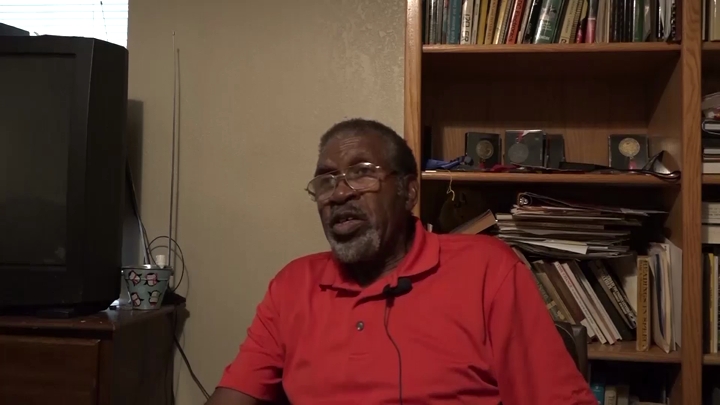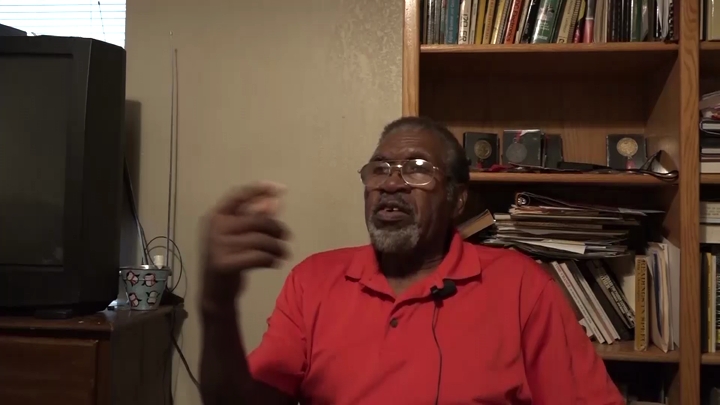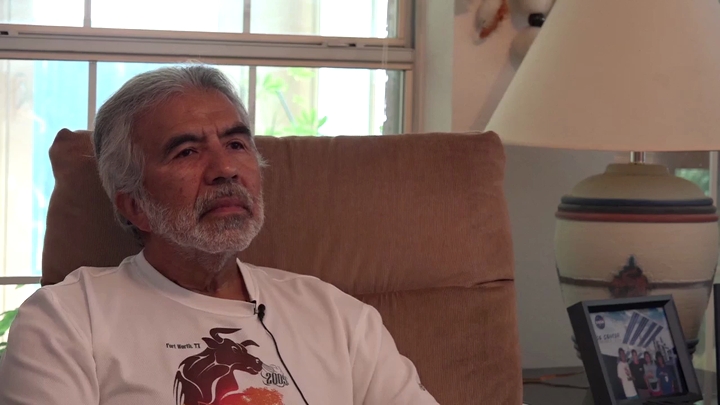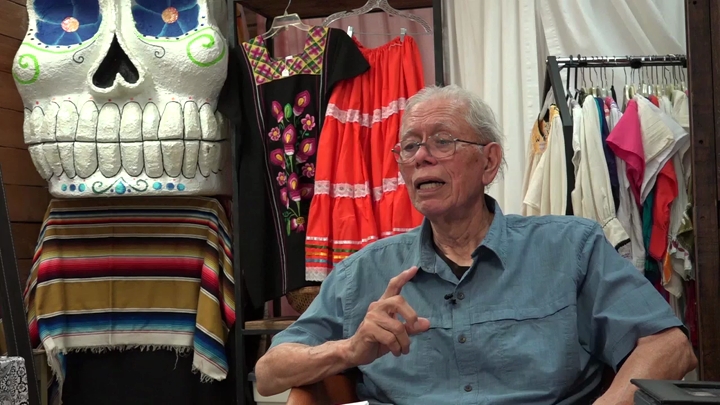Medrano / College Activism
sign up or sign in to add/edit transcript
Interviewer-"And then you went to college, UTA." Mr. Medrano-UTA, no at that time, it wasn't a four-year college. Interviewer-"OK" Mr. Medrano-It was out-of-the-state college. Interviewer-"Ok" Mr. Medrano-It was a regular community college we have today, so, now and thats when you understand the politics, we asked, "Why wasn't there a law school?", you know, its a new private, no public law school was [?] because of the politics in Austin because of the people here in the north area do not bring a college of law school into the north area because you going to get people starting getting enrolled and then all the lawyers your going to churn them out into the industry, they gotta come up from a native school and those are the ones that are going to continue to serve the community of Dallas and you don't know a progressive person studies, becomes lawyer, and then starts practicing pogressive law, civil rights, in educated communities, you make it [?] so the majority of Texas Southern, Texas Southern thats where you get Hispanics, you want a law degree, you go to Texas Southern which is an all-black school. Interviewer-"Was Saint, uh, what's the grad school in San Antonio, Saint Mary's?" Mr. Medrano-St. Mary's. Interviewer-"Yea, was that an option?" Mr. Medrano-Yea. Interviewer-But, but, but, oh that's right, yea" Mr. Medrano-Yea, its private and then its hard to get into UT Austin. Interviewer-"Right, right" Mr. Medrano-Now, you competing against United States, those are people that are applying from New York to get into a more, they already getting in[?] college prep, if they can get admitted to the law schools here before we are . We weren't ready, we were getting academic challenged, we were really students in the northeast area. Interviewer-"So, your time there at, what is now UT Arlington, you helped changed the mascot and you changed all the imagery like the whole re-branding, if you will. Mr. Medrano-Yea, and I still have my college graduate ring and I still got the rebel flag, its got the rainbow flag and its got the-what do you call the little hat? Got the cross and the baseball hat, its still in here, you can still see it here and the flag is still here and I said "Wow" we could really, you know update. At that time, you know, the movement, it was really strong right now, were talking about really nice, and we are already down to 64, 65 60, all that kind of stuff. I started working part-time at where my dad was working at. he was still working there, so I said to my father, "they pay good, you want a part-time job, you go to college" So, I started taking my 12 hours and then working at the plant, so I was taking, so I was taking my 18 hours and I was taking my 12 hours, 12 hours, 12 hours, then I got married, that really cut down into my education and I got additional responsibilities now [?] lol! And then that ampers my education. But, I didn't give up, I still went after those three hours, six hours, three hours, knowing that I have to have [?]....
| Interview | Interview with Robert Medrano |
| Subjects | Education › Higher Education |
| Education › Education and Integration | |
| Education › Private and Parochial Education | |
| Education › Quality of Instruction | |
| Tags | Arlington State College |
| Texas Southern University | |
| University of Texas at Austin | |
| Confederate Flag | |
| Mascots | |
| University of Texas at Arlington (UTA) | |
| sign up or sign in to add/edit tags | |
| Interview date | 2015-06-10 |
| Interview source | CRBB Summer 2015 |
| Interviewees | Medrano, Robert |
| Interviewers | Acuña-Gurrola, Moisés |
| Duration | 00:03:48 |
| Citation | "College Activism," from Robert Medrano oral history interview with Moisés Acuña-Gurrola, June 10, 2015, Dallas, TX, Civil Rights in Black and Brown Interview Database, https://crbb.tcu.edu/clips/858/college-activism, accessed March 04, 2026 |






